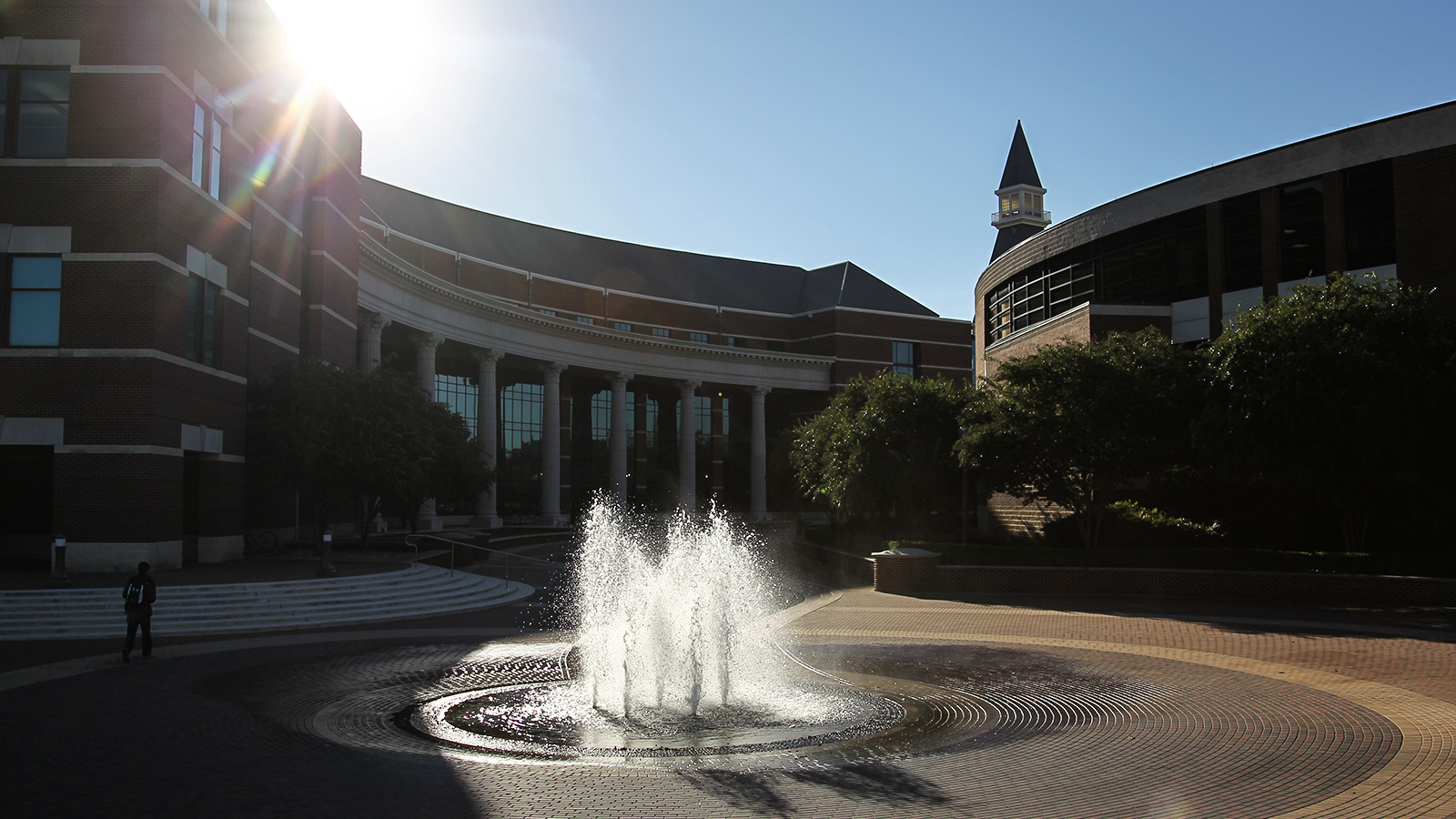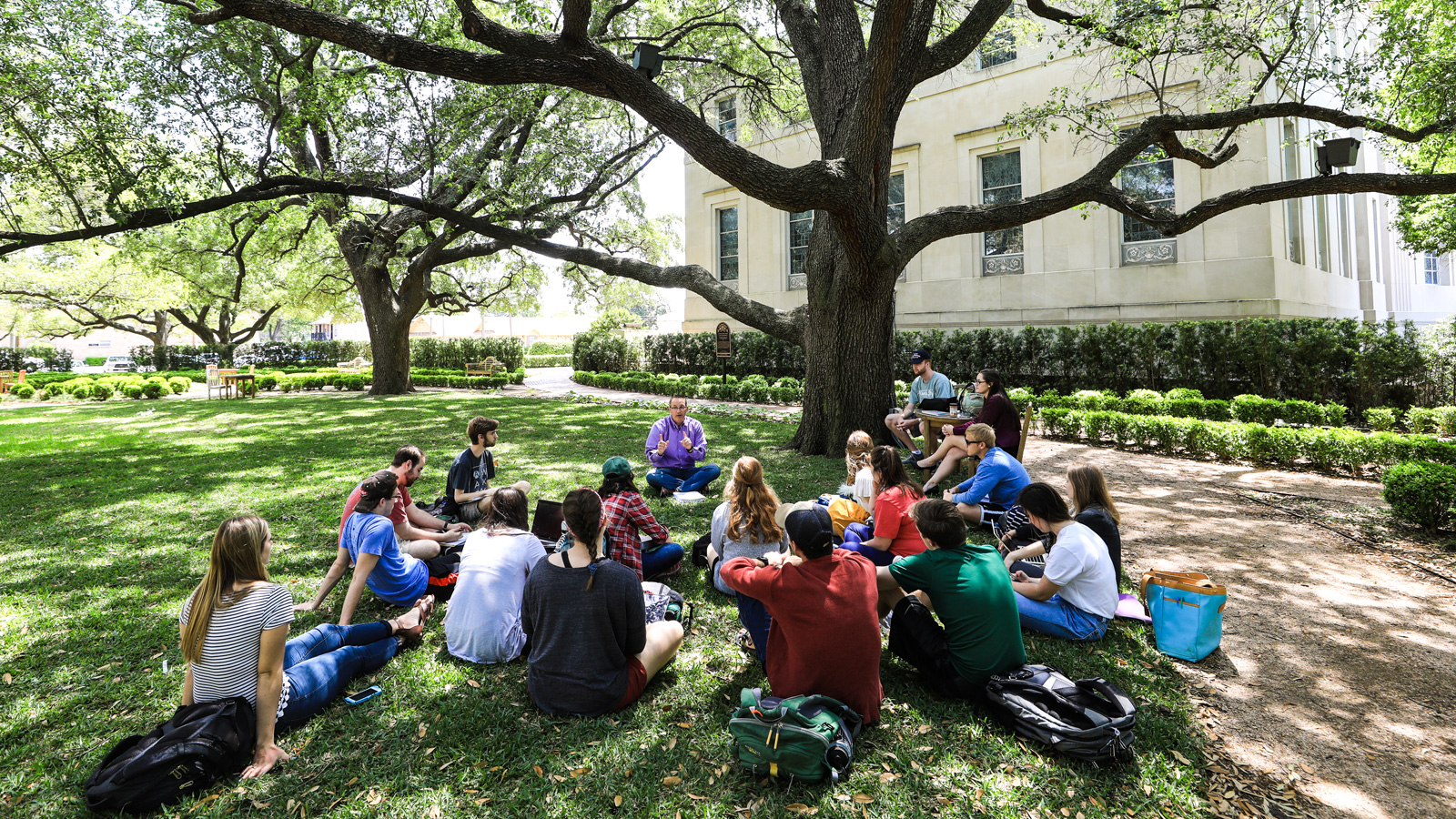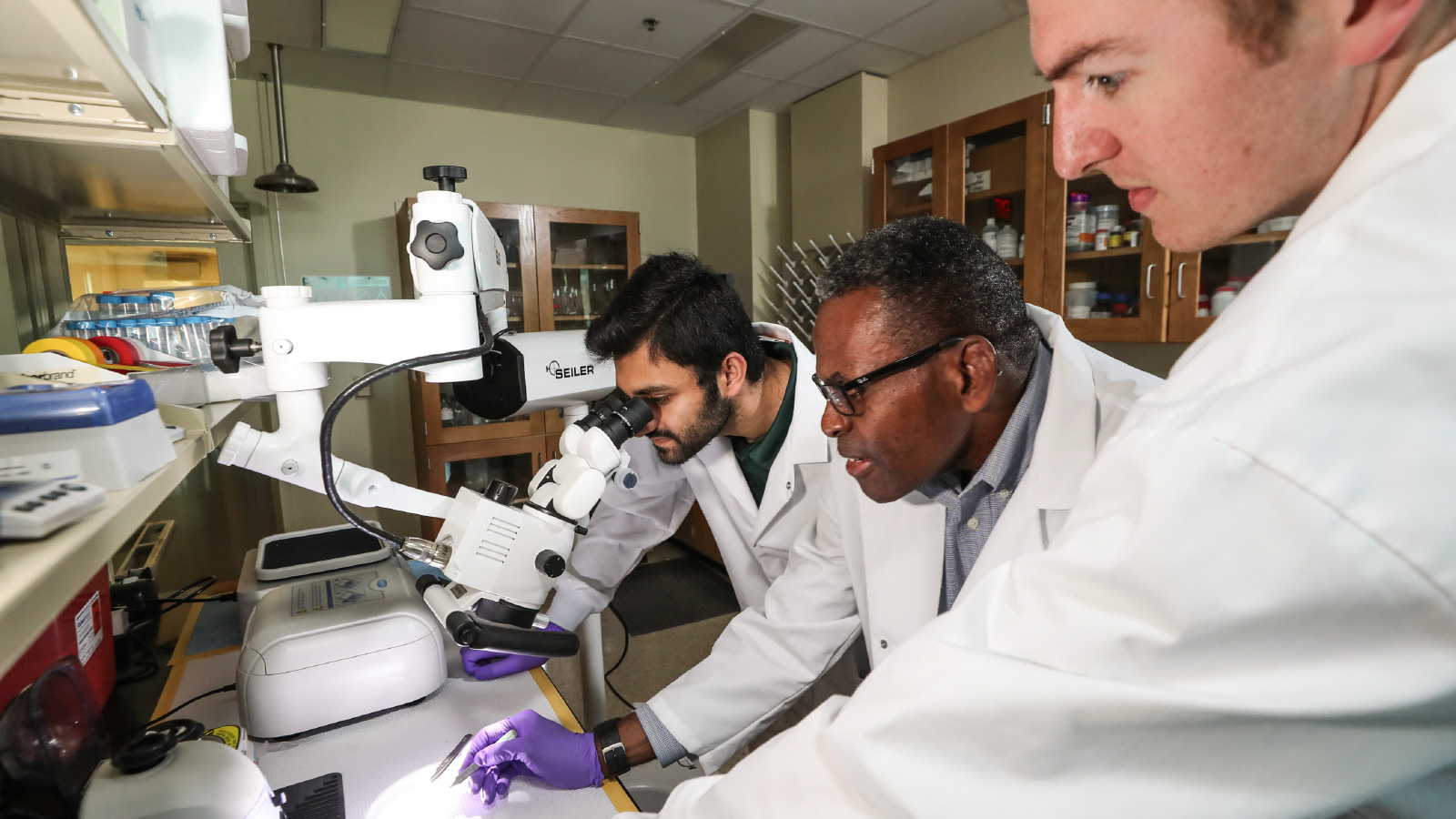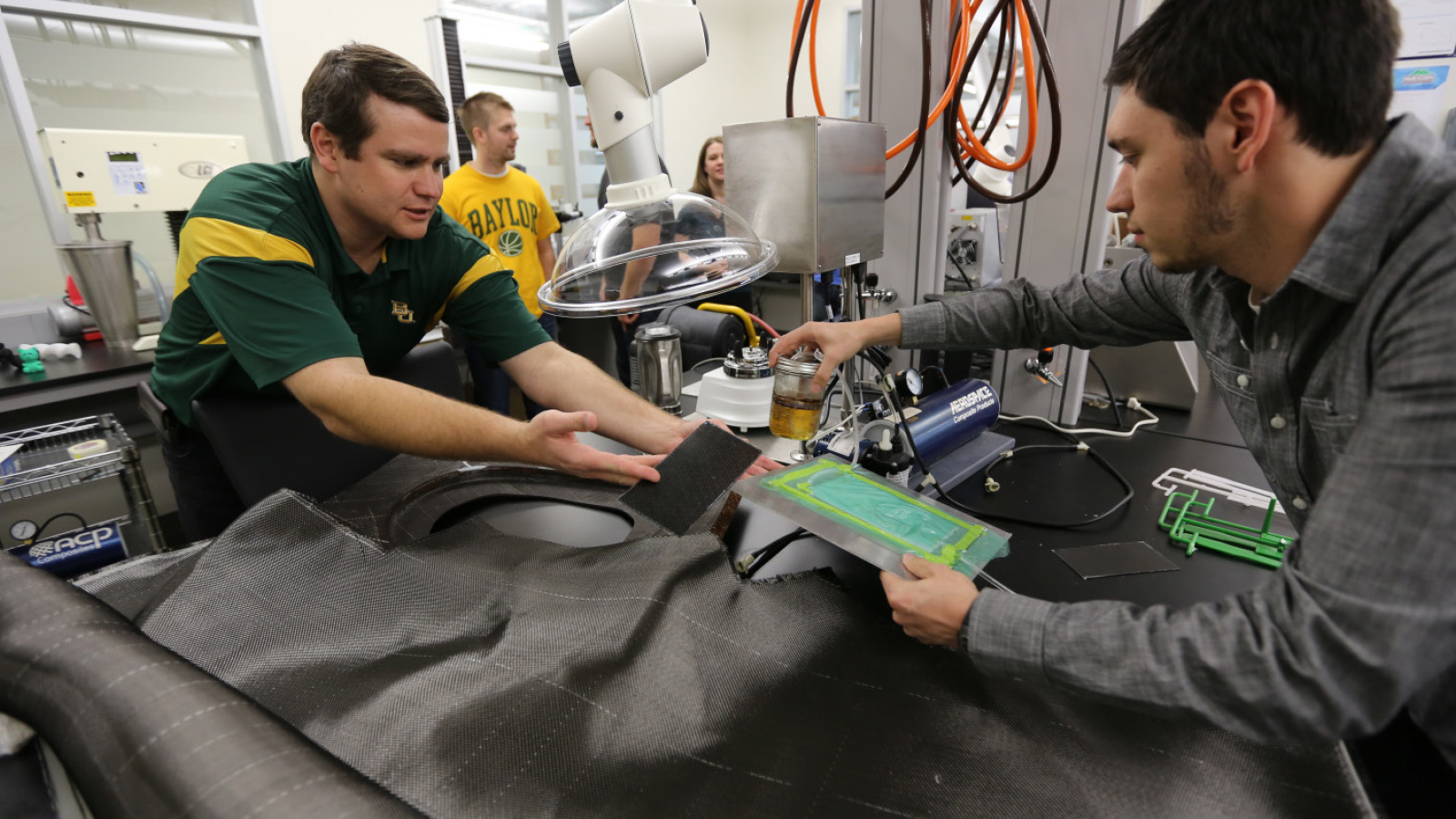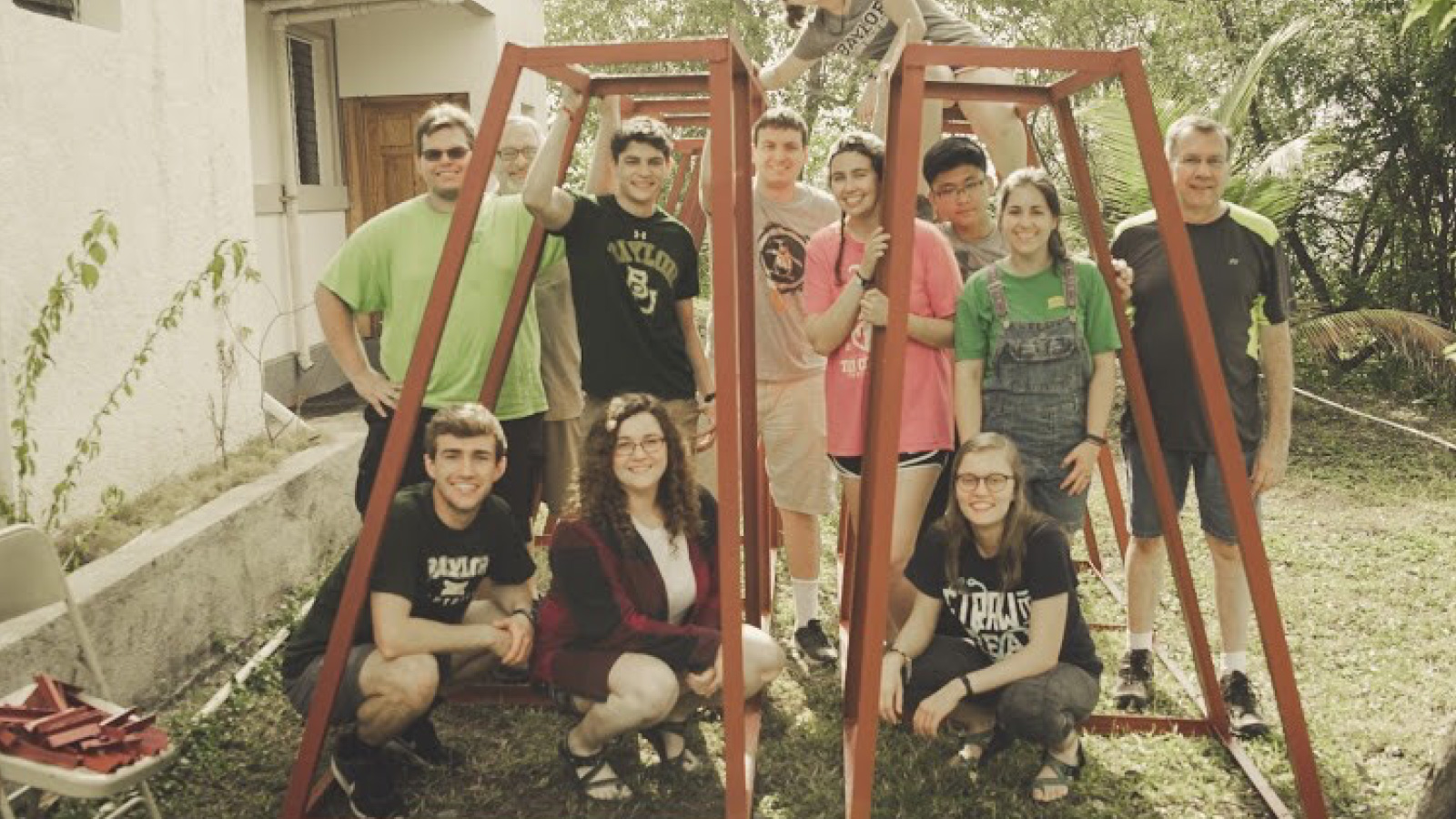Illuminate
In May, Baylor's Board of Regents unanimously approved Illuminate, an academic strategic plan that complements Pro Futuris and will guide the University over the next half decade.
During her first year in office, Baylor President Linda A. Livingstone, PhD, has guided the University to renew its focus on operational strength, open and engaged communication, student well-being, and excellence through in- and out-of-classroom experiences and research that help students find and follow their callings. She has also redoubled our efforts on the academic enterprise of Baylor, working across the University to develop an academic strategic plan, called Illuminate, that was unanimously accepted by the Board of Regents in May 2018.
Baylor is well positioned to pursue the ambitious goals of Illuminate. Building on the aspirations in Pro Futuris, the strategic vision Baylor adopted several years ago, Illuminate is structured on four foundational pillars that assert Baylor will be a community recognized for:
• Unambiguously Christian educational environment;
• Transformational undergraduate education;
• Research and scholarship marked by quality, impact and visibility; and
• Nationally recognized programs in human performance through the arts and athletics.
”Illuminate is the result of significant collaboration across our 12 colleges and schools. It has also been informed by a number of Baylor Conversation Series events and an open-ended online feedback form for faculty, staff and students.”
“Illuminate is the result of significant collaboration across our 12 colleges and schools. It has also been informed by a number of Baylor Conversation Series events and an open-ended online feedback form for faculty, staff and students,” Livingstone said in a letter to the Baylor Family. “Illuminate calls for the shared work of the entire Baylor Family to fulfill its ambitious goals. Baylor is taking steps to bring light to the world as a preeminent Christian research university, building on Baylor’s historic strengths and strategically investing in key areas of research to find solutions to the immense challenges facing our world.”
Standing in the Gap
Baylor aspires to become America’s preeminent Christian research university. Our nation’s earliest institutions of higher education—and others, like Baylor, founded in the 18th and 19th centuries—were created by Christian leaders who believed the combination of faith and academic excellence was essential in preparing men and women for professional achievement and the betterment of society.
Over time, however, almost all of these private schools abandoned their Christian identities in pursuit of greater research activity and prestige.
In contrast, Baylor’s institutional life has always remained firmly grounded in our Christian faith in the Baptist tradition. Today, that faith is inspiring our pursuit of greater levels of academic excellence as we understand that all truth is God’s truth.
Baylor is able to guide students in the consideration of crucial issues from every possible perspective—ethical, religious, social and intellectual—and our faculty members can serve as open and persuasive advocates for the beneficial role that faith plays in their teaching and scholarly research.
This, above all, distinguishes but does not separate Baylor from secular universities as we endeavor to be a shining light in the world.
The world needs a Baylor that raises the bar in the area of Christian higher education, combining the richness of undergraduate, professional and graduate education with rigorous research, celebration of the arts, championship-level athletics and unwavering faith commitment.
The world needs a Baylor that brings our religious identity, institutional resources, and human talent to bear in generating creative solutions to complex problems.
The world needs a Baylor that is committed to finishing the race we have started, striving to achieve excellence as a research university that is unambiguously Christian. When we can accomplish this goal, we will articulate and embody an exceptional vision for 21st-century Christian higher education and produce graduates with the wisdom, innovation and leadership skills required to make a difference in the world.
Pursuing Solutions to Key Challenges
Illuminate features five multidisciplinary Signature Academic Initiatives that focus on key challenges facing society today: Health, Data Sciences, Materials Science, Human Flourishing and Ethics, and Baylor in Latin America. These initiatives will amplify and expand our Christian commitment and position Baylor for leadership in fields of national importance. By strengthening scholarship, deepening learning and enhancing teaching, these initiatives will support our commitment to excellence in undergraduate education and growth in graduate education.
“The development of Illuminate would not have been possible without faculty who are passionate about their academic areas coming together in support of the mission of Baylor University,” Dr. Gary Carini, vice provost, graduate and professional education and strategic planning, said. “From more than 130 faculty sharing existing collaborations in their disciplines, to workgroups developing the pillars and initiative concepts and design teams bringing their expertise to bear on the process of implementation, the resulting blueprint will propel Baylor toward a very bright future.”
Collaboration is vital to finding solutions to the immense challenges facing our world. Baylor’s Illuminate calls faculty to engage in multidisciplinary academic initiatives and contribute as mentors to undergraduates and graduate students through high-impact learning experiences. Illuminate initiatives are developed around areas where existing collaboration among Baylor faculty members is yielding results and where continued work will galvanize interest among researchers and academic leaders on our campus.
Health
A wide range of disciplines across Baylor’s schools and colleges have active, productive research and collaboration around health disciplines. From the Institute for Biomedical Studies to the Center for Reservoir and Aquatic Systems Research, the Robbins Institute for Health Policy Leadership, the Center for Family and Community Ministries and many more, faculty are actively working alongside undergraduate and graduate students to engage in discipline-shaping research and innovation that could change the trajectory of healthcare.
Illuminate places an emphasis on several key areas of research interest—environmental determinants of health, family and community determinants of health, biomedical research, health policy, law, leadership and ethics, and undergraduate health and medical education. It also calls for greater collaborations with health-related partners that share the Baylor name—the Baylor College of Medicine and Baylor Scott & White Health—and other organizations that offer alignment with the University.
Baylor’s distinctive opportunities include the preparation of the next generation of Christian physicians, nurses, leaders, researchers, mental health providers and policymakers at a time when a Christian voice can provide profound guidance. We must provide them with the ability to engage with a society faced with groundbreaking moral and ethical challenges to our understanding of human life and dignity.
Data Sciences
Data Sciences is a rapidly advancing, interdisciplinary field that relies on techniques and theories drawn from machine learning, data mining, scalable data storage, and digital communication, as well as the disciplines of statistics, mathematics and library sciences.
Applications of Data Sciences expand the collective approaches supported by these fields to solve problems in diverse areas.
Research, educational and professional training objectives are focused initially in three complementary areas: (1) biomedical informatics, (2) cybersecurity, and (3) business analytics. Ethical uses of largescale data is an overarching theme that permeates all facets of work.
Through this initiative, faculty and students interact with producers of data, on and off campus, and develop new methods to manage and interpret life science data, enterprise scale business data and data from other domains, as well as establish best practices for data analytics, integration, management and security. This can yield opportunity for the commercialization of technology—the process of taking ideas that emerge, giving them traction in the business community, and, thus, creating job opportunities. Further, as innovation drives commercialization, the reputation of the University is enhanced significantly. Commercialization of technology also may serve as a sustainable revenue source for further research growth.
Materials Science
Materials Science is a cutting-edge field with high market demand for graduates and vast external funding opportunities. Materials Science research positions Baylor as a leader in technologies that make products faster, stronger and lighter, providing solutions for enhanced quality of life. Over the last 50 years, Materials Science has played a pivotal role in defining modern society. Our methods of communication, such as computers, smart phones, HD televisions and other communication systems, rely heavily on advances that have sprung from materials research.
Composite materials are increasingly used in the aerospace and automotive industries, revolutionizing the way we travel. Moving forward, advances in Materials Science will play a key role in realizing efficient energy storage and usage such as that required for solar energy and electric cars. Materials research also extends into the medical field. For example, plastics have revolutionized the chemical compatibility of artificial implants, and nanoscale materials promise to offer new alternatives for drug delivery, including cancer treatment.
Research in Materials Science has been active among Baylor faculty for several years. Working individually and across a range of colleges, schools and departments, these faculty have garnered external funding, provided high-impact learning experiences for undergraduate and graduate students, and are identifying solutions to challenges facing high-visibility industries.
Human Flourishing and Ethics
Our Christian perspective and transdisciplinary approach to the teaching and research of human flourishing equips Baylor faculty, students and alumni to offer unique responses to social problems. The research and programs developed around human flourishing and ethics will provide a single venue dedicated to addressing the ethical, social and technological challenges facing the contemporary world.
With a goal of becoming a global leader in the field of ethics and questions of human flourishing, Baylor supports bold and distinctive cooperation between a range of academic disciplines and methodologies charged with advancing teaching, research and application in the broad aspects of human flourishing and ethics.
Equally important to a thriving society and the development of individuals is an appreciation for and expression of the arts in many forms. Expressed through the Departments of Art, Film and Digital Media and Theater Arts and the School of Music, Baylor is building on the strong national reputations of these programs to continue enriching the artistic life of our community, region and nation. The arts develop original thinking by blending liberal arts education and professional training.
Programs foster collaboration across schools, colleges and student life, and they embody the very essence of Baylor’s “worldwide leadership and service” mission by equipping students for the types of collaborative, cross-sector leadership and service that the future demands.
Baylor in Latin America
The Baylor in Latin America initiative provides the level of institutional support currently present at peer institutions and other leading universities across the nation with respect to engagement of the Americas (South America, Central America, Mexico and the Caribbean), while capitalizing on the competitive advantages of our proximity and our faith commitment.
The most recent Census figures available indicate that Hispanics/Latinos represent more than 39 percent of the Texas population. And, the Census Bureau projects that by the year 2030, immigration will surpass natural increase as the primary contributor to population growth in the United States. This initiative is responsive to these changing demographics and future trends. The aims of the initiative are further bolstered by the University’s strong ties to Baptist and Christian life, in Texas and abroad, that will promote Baylor’s Christian mission and institutional commitment to world-class research and scholarship.
The Baylor in Latin America initiative positions the University to be one of the most extensively engaged faith-based universities in the nation with regard to work in the Americas. Specifically, the initiative facilitates meaningful collaboration across content areas and disciplines that help improve conditions in high-impact areas within Texas and Latin America in the following areas of inquiry: health and disease prevention, business development and international trade, human capital formation and education, immigration, migration, and human trafficking, congregational development, democratic governance and economics, culture and arts.
“Advances in any one of these initiatives could change the landscape of the field and bring lasting solutions to real-world challenges,” Carini said. “The impact on national conversations, on future generations of faculty, and on the students engaged in our classrooms, labs and studios today is tremendous. People will look to Baylor for the expertise to move conversations forward because of the thought leaders, pioneers and innovators educated here.”
Facing the Future Boldly
Our aspiration to integrate academic and teaching excellence with an uncompromising Christian identity positions the University to have a transformative impact on our students, higher education and the world. Higher education is in a time of significant change and challenge. Colleges and universities are criticized as being disconnected from society and lacking coherent values or applicability to real life. There also is growing disagreement over how higher education should shape leaders of character.
When Samuel Palmer Brooks penned his Immortal Message to the seniors of 1931 and the “seniors of all years,” he called them to “Face the future boldly, courageously, joyously” and “to have faith in what the future holds.”
”Do not face the future with timidity nor with fear. Face it boldly, courageously, joyously. Have faith in what it holds.”
The call remains.
“As President Brooks’ words were true then and as they have inspired decades of Baylor alumni since, we look to a future for Baylor University with a bold plan,” Livingstone said. “Baylor exists to demonstrate that faith is not a deterrent to scholarship. Rather, faith is the very motivation for discovering the richness of creation. It compels us to engage with issues spanning the intellectual and ideological spectrum, fostering productive dialogues that ultimately bring our discoveries to bear on the most complex problems of today.”
For more about Baylor's Academic Strategic Plan visit baylor.edu/illuminate.
